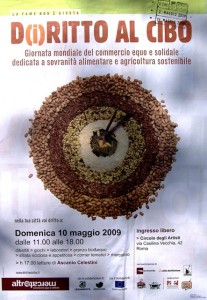Don’t make any plans for 18 September: it’s World Bamboo Day. And it’s the climax of the VIII World Bamboo Congress in Thailand, which goes under the title of Bamboo, the Environment and Climate Change this year. If you don’t think bamboo is particularly important, read about the plight of a Bhutanese village. Via the INBAR website, via the new NWFP newsletter.
Nibbles: Adam Forbes, Squash, Native Americans, Gardens, Buffalo, Pastoralism, Primula, IPR
- Global seed searcher Adam Forbes check in.
- Filipinos greet new squashes.
- Smithsonian special feature on the American Indian. Not much agrobiodiversity, but still.
- Reviews of a couple of interesting gardening books.
- Asian Buffalo Congress 2009.
- Policies that work for pastoral environments.
- “Farmers are being encouraged to graze fewer, rarer animals, and that means the fields can sustain traditional wild flowers. It is a sweet-smelling plant and cattle and sheep love to eat it.” It is the cowslip.
- Case studies on intellectual property in agriculture and forestry.
Russian agriculture as it was in living colour
English Russia is an “entertaiment blog devoted to the events happening in Russian speaking countries.” Quite often fun but not, you would have thought, likely to feature much of agrobiodiversity interest. And you’d be right. For 99% of the time at any rate. Because there was a post a few days ago with truly amazing colour photographs of the Russian Empire from a hundred years ago, and many show farming products and activities. They’re by Sergei Mikhailovich Prokudin-Gorskii, according to one of the comments, and he had a Library of Congress exhibition devoted to him in 2003, whose website is where it seems most of the images in the English Russia post originated. Well worth exploring. I wonder if some of these images could be used to compare with the present. For example, are these melons still to be found in Samarkand?
Happy World Fair Trade Day!
Today, May 9th is World Fair Trade Day, apparently. I had no idea until I saw this poster a few days ago. And even then there was some confusion as for some reason the date on it is the 10th.

The theme is food sovereignty and sustainable agriculture. There’s a great-looking programme being organized here in Rome. Anyway, as an old germplasm collector, I can really relate to all those seeds on the poster.
Happy 25th, LEISA!
LEISA Magazine has chosen a fitting theme to celebrate its jubilee: diversity.
It expresses itself in many ways. There are diverse landscapes and ecosystems, diverse ways of life, diverse crops and agricultural systems. Small farms have been naturally benefiting from the diversity in their natural environment.
I wont even try to summarize. The contents are here. To the next 25 years!